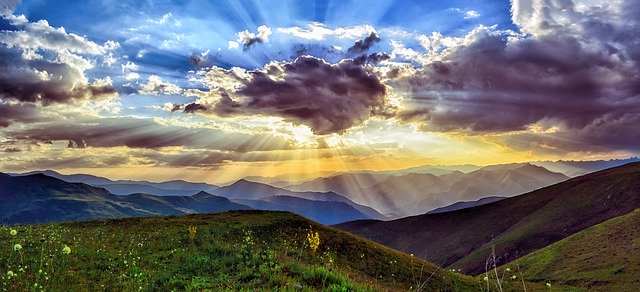Thus the heavens and the earth were finished, and all the host of them. And on the seventh day God finished his work that he had done, and he rested on the seventh day from all his work that he had done. So God blessed the seventh day and made it holy, because on it God rested from all his work that he had done in creation.
Genesis 2:1-3

The seventh day – a day set apart from all others. The day upon which God Himself rested from all of His work that He had completed in Creation. The heavens and the earth were finished, and all that now populated them. The sun, the moon, the stars, the plants, the animals, man and woman. I find it interesting that the word used for “hosts” is the same word that is often translated as “army”, usually referencing the cadre of angels, whom God had also created. However, in this unique instance, the word carries with it the meaning of “service” – all of those who were created within the heavens and earth were created to serve and glorify the Creator.
But did God Himself require rest because He was tired? Such a thought would be heretical and deny His omnipotence. The answer to why God rested isn’t because He needed rest Himself, but rather that we need rest and He was providing an example. “Jesus said to them, ‘The Sabbath was made for man, and not man for the Sabbath. So the Son of Man is Lord, even of the Sabbath.'” (Mark 2:27-28 ESV) Even the Pharisees had flipped this around and turned the Sabbath into some sort of “Look at how holy I am!” ritualistic exercise. Even in Germany today, there are cities and towns with laws and ordinances that forbid excessive noise on Sunday, including cutting one’s own grass. In America, we tend to work 5 days in the commercial workforce, one day around the home (most often Saturday), and we reserve Sunday for worship. Now some people will worship entertainment this day, instead of the Lord of Creation, but I digress…
Some today are even legalistic about what day of the week one should worship on, preferring to worship on Saturday as the seventh day of the week. In accordance with the Jewish calendar, this would be accurate, but in accordance with our cultural reality, that is not always practical. In the book of Acts and the writings of Paul, there are references to Christians worshipping on “the first day of the week” (Acts 20:6,7; 1 Corinthians 16:1,2) – in recognition of the importance of the Resurrection. Which is why Paul would settle such debates as to which day of the week we ought to celebrate the Sabbath: “Therefore let no one pass judgment on you in questions of food and drink, or with regard to a festival or a new moon or a Sabbath. These are a shadow of the things to come, but the substance belongs to Christ.” (Colossians 2:16-17 ESV)
God knew that we would need a day of rest from our own work, so He set the first example. He also set that seventh day aside for Himself, so that all of His creation would take the time to gather together before Him as a Father gathers His children. This is the act of worship. The gathering together of His children in adoration and praise and honor for all the Father has done. We praise Him for everything He has done. We worship Him for everything that He is. For He alone is worthy of our worship. Not creation. Not mankind. Not even the Sabbath itself.